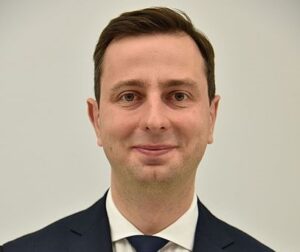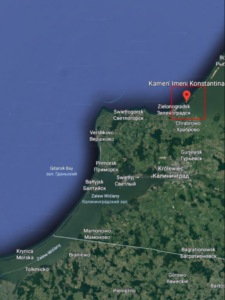The project of the Eastern Partnership has lost momentum in recent years due to the destabilizing activity of Russia. The panel entitled “Securing the Future of Eastern Neighbours of the EU: revision of the Eastern Partnership?” at the Warsaw Security Forum, on which BusinessAlert.pl held its media patronage, was a good opportunity to summarize its achievements and talk about the future.
Director of the Center for Eastern Studies (OSW) Adam Eberhardt said that the conversation on the revision of the Eastern Partnership were justified – in his view, in a crisis situation there is no possibility of further enlargement of the European Union, which may begin to shrink after the Brexit. He pointed out, however, that the Eastern Partnership is barely one of the Eastern policies area of the EU and that the countries concerned should understand that integration with the EU means not only legislation but real improvement in the quality of life at local level.
Anders Åslund from the Atlantic Council also participated in the discussion. He said that there are still too few countries actively interested in the Eastern Partnership – primarily Ukraine, Georgia and Moldova, and there are serious requirements ahead: – In order to be a credible partner for the European Union, the most important are two factors: the rule of law must be guaranteed, and property rights must be respected. So far, these conditions are only meet by Georgia, Ukraine in some areas has problems with it, and the success of the Partnership depends on it. In the event of any problems, the Western world has created institutions and tools through which these countries can be actually supported financially – said Åslund. He also said that the primary objective of the Eastern Partnership is to promote democracy for a simple reason: democracies are not waging wars between themselves.
Tobias Schumacher from the College of Europe has diagnosed that the core problem of the Eastern Partnership is that its ultimate goal has never been clearly formulated – it is all the more painful that the European Union has de facto refused to recognize Ukraine’s European aspirations: – In the meantime, for the countries interested in the Eastern Partnership, a road map should be clearly defined – said Schumacher – Meanwhile, support for integration with the Union in the Partnership countries has been consistently falling – he added.
Hanna Hopko, chairman of the Ukrainian parliamentary committee on foreign affairs, was undoubtedly an important speaker in this panel. She spoke about the Ukrainian hopes regarding the Eastern Partnership in the face of the conflict with Russia: – Strong Europe needs strong Ukraine – she said. She also said that in recent years Ukraine has faced the most severe crisis for more than a quarter of a century, which forced it to change its macroeconomic orientation for obvious reasons – even though it concerns investments or directions of foreign trade.
– Ukraine is reforming; we have recently worked on the electoral system, the rules of privatization and the health service. Energy connections are also important for us – she said. Hopko also added that Europe and Ukraine are facing similar challenges from Russia – pointing to cyberattacks. She also pointed out that Ukraine had taken on the whole burden of the conflict with Russia and issued an appeal: – The economic nature of projects like Nord Stream 2 is superficial; in essence, it is a political blow aimed at Ukraine. I hope Europe will be wise enough to see that – she said.
Advisor to Georgian President Tengiz Pkhaladze for international affairs said that the destabilization of its border regions is a constant part of Russia’s activities. – Europe cannot afford just to watch it – he said. In his opinion, a big problem in Europe is the rising wave of right-wing populism, but the roots of these problems must be seen outside the EU.
The general pessimistic tone of the debate seemed to change by the member of the public from the USA. In the summary of the debate, he argued that the real success of the Eastern Partnership would be the hope of improving its fate among the citizens of the countries covered by the program. According to the guest, that was the reason why the pro-European demonstrations took place at Kiev’s Maidan.








